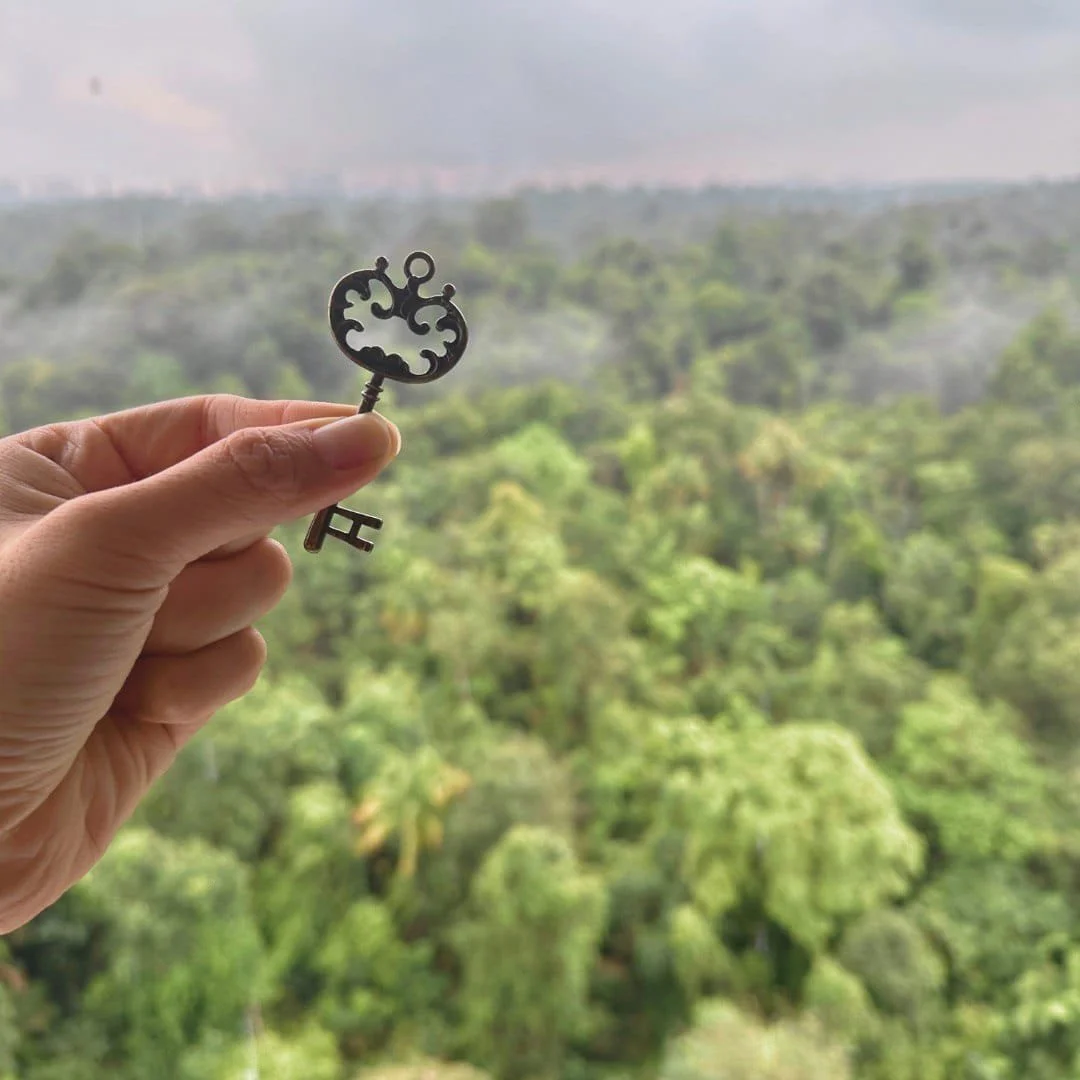What if Church Hurts?
Do I really need to attend church in person?
Should I serve in church if I haven’t yet found a place of belonging?
How can I cope with going to church with multiple children who are too young to attend Sunday School?
Ever since I opened up my Instagram inbox for people to ask questions anonymously, these are just a fraction of the churchgoing-related questions I’ve received.
Finding them too challenging to answer immediately, I put them all aside.
One day, at a visit to my occupational therapist, a revelation hit me like a ton of bricks.
At once, the answer to the diverse variations of the same question became crystal clear.
When hurts become pain
You see, several weeks ago, I went to bed in tears, with aching hands.
At first, I thought the pain would pass with some rest, but when the pain in both my wrists, fingers and palms became progressively worse – to the point where I could neither type, hold my phone nor open a bottle – I began to cry.
What was going on?
Even as a doctor, I could neither discern if the discomfort was a tingling sensation pointing to a nerve issue, or if it was an arthritic issue. The dull, tingling pain across all my joints and ligaments was excruciating, even with bilateral wrist braces.
I wondered if I would ever regain normal function of my hands.
Thankfully, detailed consults with my hand surgeon and occupational therapist friends brought light to the matter.
“It’s like you’ve put your fingers and hands through multiple marathons, and they’ve never had time to recover.”
It was a simple diagnosis: Due to overuse, I had suffered serious repetitive strain injuries on both hands.
“It’s like you’ve put your fingers and hands through multiple marathons, and they’ve never had time to recover.”
“What? How could this happen?”
“You have hyperlaxed ligaments. That makes your joints unstable, so your muscles work extra hard all the time. You don’t need surgery. All you need is rest.”
For weeks, I rested religiously. I put my phone away for long periods of time, exercising Sabbath from social media. My husband chopped vegetables for me. Within a week, I could feel significant improvements.
But as the weeks passed, the pain returned – this time with a vengeance.
My heart raced. If even rest did not solve the issue, could this be something more serious?
“Rest without rehabilitation leads to atrophy.”
“Let’s see what’s going on,” said my occupational therapist.
As she examined me, I watched a knowing smile spread across her benevolent face as she asked: “Have you been doing the exercises I taught you?”
“Well, I try to,” I said sheepishly. “But I often forget.”
“This is very common,” she raised her eyebrows. “When people get injured and they rest their muscles, they heal. But after a while, if they don’t do their exercises, the muscles get progressively weaker, and they lose function. Their pain returns. That’s what happened to you.”
I gasped.
At once, I felt the Holy Spirit speak to me about my own season of being hurt by the Church and giving me the answer to the gamut of church-related questions I’d received on Instagram.
My revelation is this: Rest without rehabilitation leads to atrophy.
Overwhelmed by condemnation
In my previous article about what nearly leaving church taught me, I shared that, at times, hurts experienced in the church can be so deep and accumulatively painful that we need a season of rest.
“God doesn’t have a checklist of Christian programmes we attend which He uses to grade our spirituality.”
Just as I had unconsciously overused my hand muscles, many of us, too, might be burnt out from serving in ministry. One follower wrote to me: “I feel I’ve spent my whole life serving the church and I’ve forgotten who I am, what I am worth.”
Another wrote: “I feel so burnt out from serving, but I feel overwhelmed by condemnation if I serve less.”
Young mothers write to me from time to time: “I feel like a zombie. I don’t have enough sleep as it is. But cell group runs till late. And at church, I feel like I’m carrying a double load trying to care for the kids while my husband attends service. Is it possible for me to watch the service from home? I’m exhausted.”
A season of fatigue is best treated by a season of deep rest, of simply re-discovering our identity and delight in God.
Perhaps what many of us needed to be reminded of, is how God doesn’t have a checklist of Christian programmes we attend which He uses to grade our spirituality. Rather, He is mindful of the seasons of life we’re in, and keenly aware of the posture of our hearts.
He doesn’t need us to do more work. He needs us to know our worth in Him, that we are chosen, accepted and passionately wanted for who we are.
Unguilty rest
When my family and I first returned from a season of intense travel over three years back to Singapore, I was acutely disoriented. With a newborn and toddler, the reverse cross-cultural stress of adjusting back to Singapore life was unsettling, especially as a young mother.
When an unfamiliar, older Christian leader approached me and asked why I was not attending cell group, I looked at her, bleary-eyed, and explained that jetlag, broken nights of sleep from early motherhood and moving into our fourth rental home in two years had taken its toll on me. I was burnt out.
“In cases of burnout, hurt, and grief, rest is not wrong. Resting to heal is, in fact, necessary.”
“But if you don’t attend cell, your children will fall away from God. You should find a better way to parent. We are here to support you so you can attend cell every week.”
I looked at her, my face drained of colour. After a series of hurts I’d accumulated from Christian communities in various countries we had lived and served in, something in me broke.
For weeks, I wept over the incident. I left her cell group and did not return.
As the pandemic came and went, I found solace in my private world of attending church online. I plotted my great escape. I would slip away from my church community and no one would know a thing.
What I did not realise was that, in God’s grace, He had availed to me a season of un-guilty rest.
In cases of burnout, hurt, and grief, rest is not wrong. Resting to heal is, in fact, necessary.
Extravagant healing
During the pandemic, as I served as a frontline worker, I went for inner healing and counselling. Little did I realise how years of serving as a missionary had left me tired and, in some areas, bitter. As I healed, I began to see that, as much as I had felt hurt by community, it was the very thing I needed to grow again.
“God, would you restore my faith in the Church? If you love her, help me to love her, too.”
At first, I could not. Even when church services opened up, I dreaded attending church in person.
Whenever I did, my heart raced. Who would come and lecture me? Who would tell me I ought to try for a boy? Who would judge me for not attending cell group?
The social anxiety debilitated me. My bitterness gnawed at me.
Behind my mask, I slunk away behind corners, using my newborn as a shield for trivial conversation.
Yet, every night, I would cry out: “God, would you restore my faith in the Church? If you love her, help me to love her, too.”
The ironic thing is, when I look back, I am most grateful for one thing – my community of mentors and friends.
Through my brokenness, they visited me individually from time to time at my home. Friends who cared, from church and otherwise, carved time to babysit my toddler so I could catch a little rest.
“Without my knowing, God was rehabilitating me.”
As time passed and my heart healed, I began to invite believers to our home regularly. While I could not muster the strength to attend cell group at night, I had playdates in the day with other Christian moms.
When my kids were too little to attend Sunday School and I was burnt out from serving as a frontline health worker during the pandemic, I stayed home to watch the service online.
I didn’t realise that, unconsciously, I was rehabilitating myself.
As I healed, I began to come out of my shell. I began to arrange meet-ups with my mentors. Finally, after months of prayer and mustering up my courage, I confessed and worked through my hurts with a trusted leader.
I met to explain why I was on the brink of leaving church. Instead of blaming me, he held space for me and, in doing so, I experienced extravagant healing.
Without my knowing, God was rehabilitating me.
Strengthening your spiritual core
The revelation I got while exercising my hands was this: It is never comfortable.
Rehabilitation with a stress ball, with rubber bands and elastic putty is tiring and unnatural. My thumb and finger muscles ache. It takes time. I get frustrated learning new exercises I am not familiar with.
“Make modifications to your past church routines and habits, to help strengthen your spiritual core.”
Yet, it was through pressing through the discomfort and unfamiliar that I got stronger.
In the same way, rehabilitating from Church hurts. It takes effort. It is uncomfortable. For every person, it looks different, too.
When I started going to the gym regularly, I did not expect that doing burpees or working out with weights would bring back the pain in my hands acutely. After all, they used different muscle groups. But pain is a funny thing – it can be triggered by indirect sources, too.
But instead of omitting exercise altogether which I was tempted to do to avoid the pain, my exercise trainer friends helped me make modifications. With a bit of trial and error, I managed to exercise within limits, and got stronger with time.
In the same way, you too, after a season of rest, can make modifications to your past church routines and habits, to help strengthen your spiritual core. Just like rehabilitative exercises, they should be gentle without causing pain, yet challenging enough to strengthen your spiritual muscles.
If you are too hurt to attend a large overwhelming service in person, could you try attending a smaller service?
If you can’t muster the strength to attend cell group, could you attend an online bible study group or meet with other believers you feel safe with, one-on-one, on a regular basis?
If you can’t go back to serving at church with the same intensity, could you scale back to just once a month?
“If you’re weary and wounded from wandering and war, God has a place for you.”
Ultimately, it’s important for us to remember that, even if we have been hurt by the Church, God loves it. And as He does, we must too. In all its brokenness, Jesus died for the Church. In the same way, we, too, must pray for the same love for His body.
So, rest for a season if you must. Do so without guilt or condemnation.
But remember, rest without rehab leads to atrophy. God wants us to continually exercise our spiritual muscles to build up the Body of Christ. You are precious, and His Body needs you.
Today, I can type without pain again. But because of what I’ve learnt through my rehabilitation, I am stronger now, and better prepared to avoid future injuries.
As you allow God to heal and restore you, my prayer is that you, too, may discover the breadth and depth of His love for you. That you may hold onto the holy over your hurt, that you may treasure the prayers of the saints over the banter of the cynics.
If you’re weary and wounded from wandering and war, God has a place for you.
3 steps to take when you’re hurt by the Church
1. Rest from whatever is causing you pain
Give yourself space away from the source of pain.
Avoid triggers.
Take time to heal.
2. Rehabilitate from your injuries
Discover spiritual exercises that can help you strengthen your spiritual muscles again. These could include inner healing, pastoral counselling, or re-discovering safe spaces and people to be around.
Acknowledge that this process may be uncomfortable, and takes trial and error. Have compassion on yourself.
If you accidentally expose yourself to a trigger and injure yourself again, rest and repeat.
3. Strengthen your spiritual core
While you may not attend the usual church programmes you did, find creative ways to maintain your spiritual disciplines of quiet time, Scripture reading, bible study and practise of the Sabbath.
As you heal and become stronger, pray for God’s grace and wisdom to enable you to be restored to His Body in a way that most pleases Him.
This article was first published in Salt&Light






